Confessions of a Hopeless Romantic: Stories That Define Love
Love is perhaps the most explored, discussed, and cherished emotion throughout human history. From ancient poetry to contemporary novels, the essence of love transcends time and culture, adapting to myriad interpretations and experiences. For hopeless romantics, love is not only an emotion but a life-defining force characterized by dreams, idealism, and, often, disillusionment. This article explores various facets of love through personal anecdotes, cultural references, and the nuances that define our understanding of romantic relationships.
Understanding the Hopeless Romantic
The term “hopeless romantic” evokes images of candlelit dinners, spontaneous road trips, and heartfelt love letters. At its core, a hopeless romantic believes in love’s transformative power. Often, this idealism can lead to profound joy but also significant heartache when reality doesn’t measure up to dreams. This paradox is what makes the journey of a hopeless romantic both enchanting and tragic.
The Idealization of Love
To understand what drives hopeless romantics, we must first examine how society has idealized love. Literature and media play a crucial role in shaping our perceptions. Books like Pride and Prejudice by Jane Austen or films like The Notebook have propagated images of love as a grand, almost magical adventure. These narratives often focus on the concept of “The One,” reinforcing beliefs in soulmate connections destined to happen.
While such stories can inspire and instill a sense of hope, they can also lead to unrealistic expectations about love. The fairy-tale endings, often devoid of the complexities and struggles that real relationships involve, create a dichotomy between expectation and reality.
Love as a Life-Defining Emotion
Romantic relationships can profoundly affect our identities and life choices. Many hopeless romantics find themselves planning their lives around their relationships, crafting dreams that intertwine love, friendship, and happiness. To them, love is not merely about affection; it encompasses companionship, partnership, and a sense of belonging.
The Influence of Culture on Love
Different cultures offer various narratives and practices surrounding love. For instance, in many Eastern cultures, love is often viewed through the lens of duty and familial expectations, which can contrast sharply with the Western emphasis on individual choice and personal happiness.
The Four Loves: An Exploration
C.S. Lewis, in his book The Four Loves, discusses four types of love that help illuminate our understanding of romantic relationships:
-
Storge (affection): This is the love that exists in families and close friendships. It is a nurturing form of love that evolves naturally.
-
Philia (friendship): This love arises from a deep bond and mutual respect between friends. It often includes shared experiences and values.
-
Eros (romantic love): Perhaps the most celebrated form, Eros is characterized by passion and desire. It can be a force of both elevating joy and devastating heartache.
-
Agape (unconditional love): This represents a selfless, altruistic love, often seen in parental relationships and humanitarian actions.
While hopeless romantics may yearn for Eros, the other forms of love play equally significant roles in shaping their experiences and understandings of relationships.
Personal Stories of Love
The First Love
First loves are often etched in our memories as magical experiences, often characterized by innocence and passion. For many, their first love is marked by a sense of discovery—of oneself and of the feelings that bloom when two hearts connect.
Anecdote: There was a summer when I fell head over heels for a classmate. We spent long afternoons at the lake, laughing, swimming, and trading shy glances. My heart raced every time they smiled at me, and we crafted a world built on promises of endless summers. However, as school resumed, parallel lives pulled us apart, highlighting the bittersweet reality that some first loves, while cherished, aren’t meant to last.
The Love That Shattered
Not all love stories have happy endings. Learning to navigate heartbreak is a rite of passage for hopeless romantics. The challenges faced can lead to self-discovery, resilience, and a deeper understanding of what love truly means.
Anecdote: After several years in a seemingly perfect relationship, I was blindsided when my partner admitted they were no longer in love. The cracks in our fairy tale made it feel as though the ground had shifted beneath me. The pain of loss was immense, but it ultimately opened up avenues for self-exploration and redefining what I valued in love.
Love in the Digital Age
With the advent of technology, the ways in which we meet, connect, and fall in love have altered dramatically. Online dating has turned the landscape of romance into a vast marketplace of options.
Anecdote: I tried online dating, swiping through profiles late into the night, searching for connection. Initially, it felt like a game, but as I ventured deeper, I discovered that behind every avatar was a person with hopes, fears, and a longing for love. While the experience was exhilarating, it also reinforced the notion that beneath the surface, many of us are still searching for that deep, soulful connection.
The Unexpected Love
Sometimes, love appears when we least expect it. A chance meeting, a shared experience, or a moment of vulnerability can ignite a spark that leads to a profound connection.
Anecdote: During a solo trip abroad, I met someone at a coffee shop. We bonded over shared passions for travel and art. What started as a friendly conversation blossomed into an enchanting romance that would alter my perception of love. It showed me that sometimes, stepping out of our comfort zones can lead to the most beautiful connections.
Challenges of Being a Hopeless Romantic
While the idea of being a hopeless romantic can be alluring, it is often fraught with challenges. Idealism can lead to disappointment, and the pursuit of love can become an obsession.
Disillusionment and Heartbreak
One of the significant challenges is disillusionment. When the reality of love fails to meet the expectations set by culture and personal dreams, it can lead to heartbreak.
Anecdote: After binge-watching countless rom-coms, I stepped into a relationship with the fairy-tale mindset. When my partner faced stress and challenges, I found myself feeling disappointed that our love story wasn’t picture-perfect. It took time to learn that real relationships require hard work and that love is not always glamorous.
The Fear of Vulnerability
Being a hopeless romantic often involves a struggle with vulnerability. The desire for deep emotional connections can be intimidating and can lead to fear of rejection.
Anecdote: In a relationship where I felt a powerful connection, I hesitated to express my feelings. The fear of being exposed and potentially rejected loomed large. It wasn’t until I mustered the courage to share my emotions that I realized vulnerability can foster intimacy rather than weaken it.
The Balance: Realism vs. Idealism
As a hopeless romantic, finding a balance between idealism and realism is crucial. This balance helps cultivate relationships that are both meaningful and sustainable.
Anecdote: After years of navigating love through my idealistic lens, I took a step back to reflect on my past relationships. These reflections helped me understand that while it’s beautiful to hope for the extraordinary, it’s equally important to appreciate the everyday moments that forge deep connections.
Cultural Narratives of Love
Literature and Film
Art has a perennial fascination with love, crafting narratives that shape and reflect societal views.
-
Pride and Prejudice: Jane Austen’s classic illustrates the evolving nature of love and the importance of personal growth and understanding in relationships.
-
The Fault in Our Stars: John Green’s contemporary novel reveals the fragility of life and love amidst illness, drawing attention to the poignancy of fleeting connections.
-
500 Days of Summer: This film explores the disillusionment inherent in modern relationships, offering a realistic portrayal of love’s complexities.
The Role of Music
Love songs are a universal language that resonate with people across generations. From classic ballads to modern anthems, music often reflects our emotional experiences in love.
Anecdote: The song “All of Me” by John Legend encapsulates unconditional love and acceptance, embodying the ethos of a hopeless romantic. When its lyrics played on the radio during a deep yet tender moment, it felt as though the universe was validating our feelings.
The Evolution of Love
Growing Together
In long-term relationships, the ability to grow together is vital. Love evolves, and the ability to adapt to those changes can strengthen the bond between partners.
Anecdote: In my current relationship, we faced numerous challenges, from career changes to personal setbacks. By embracing those moments as opportunities for growth rather than hurdles, we forged a deeper connection rooted in mutual support.
Love and the Self
Ultimately, the journey of a hopeless romantic is as much about self-love and understanding as it is about finding romantic love.
Anecdote: After a period of solitude following a breakup, I learned to cultivate a relationship with myself. Engaging in hobbies, self-reflection, and therapy helped me understand my needs and desires in love. This self-awareness empowered me to approach future relationships with clarity and confidence.
Lessons Learned
Navigating Heartbreak and Vulnerability
Heartbreak is often a teacher, imparting wisdom that fosters growth. Each experience can lead to greater understanding and patience.
Embracing Imperfections
Perfect love may be a myth, but embracing imperfections can foster rich, fulfilling relationships. Recognizing that love involves compromise, communication, and effort is crucial.
The Beauty of the Ordinary
The day-to-day moments—cooking dinner together, watching the sunset, sharing silent moments—often capture the essence of love far more profoundly than grand gestures.
Openness to Connection
The ability to remain open to love, especially after experiencing loss or heartache, paves the way for new opportunities for connection.
Conclusion: The Journey of the Hopeless Romantic
The journey of a hopeless romantic is filled with dreams, laughter, tears, and growth. While love can often feel complicated, the pursuit itself can be beautiful, leading to a deeper understanding of oneself and the world around us.
Realizing that love is only part of the narrative—the self, friendships, and even passions enrich our experiences—can lead to a more holistic understanding of what it means to be in love. For all the hopeless romantics out there, continue to dream, explore, and embrace the ever-evolving landscape of love.
References
- Lewis, C. S. The Four Loves. HarperCollins Publishers, 1960.
- Austen, J. Pride and Prejudice. T. Egerton, Whitehall, 1813.
- Green, J. The Fault in Our Stars. Dutton Books, 2012.
- Webb, M. “500 Days of Summer”. Fox Searchlight Pictures, 2009.
- Legend, J. “All of Me”. Love in the Future, 2013.
This exploration of love illustrates both the idealism and the often unrecognized complexity that accompanies it. Ultimately, the experiences shape us and enhance our understanding of what love truly means. Each story—whether filled with joy or marked by heartbreak—contributes to a fuller, richer narrative of our lives as hopeless romantics.















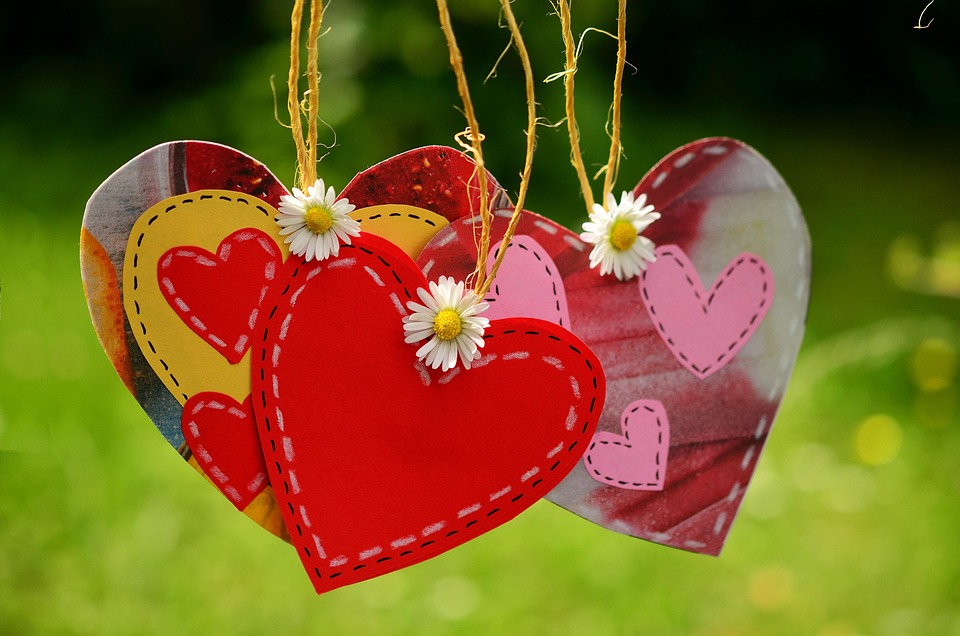
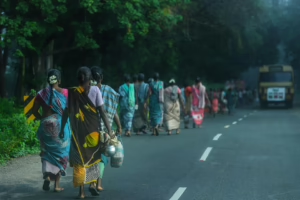
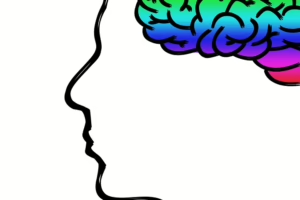

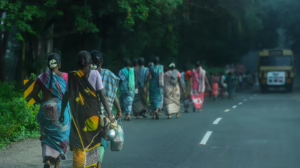
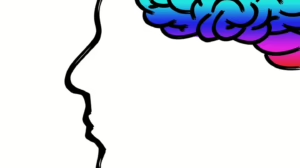





Add Comment